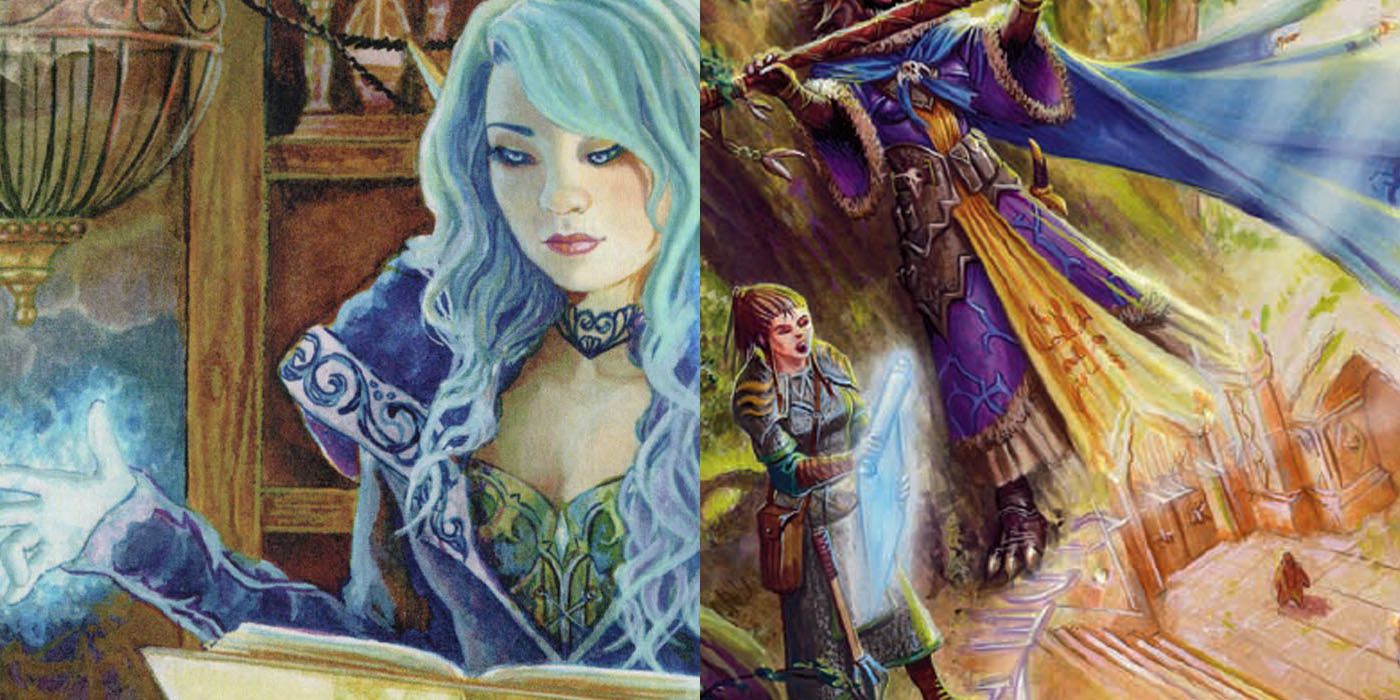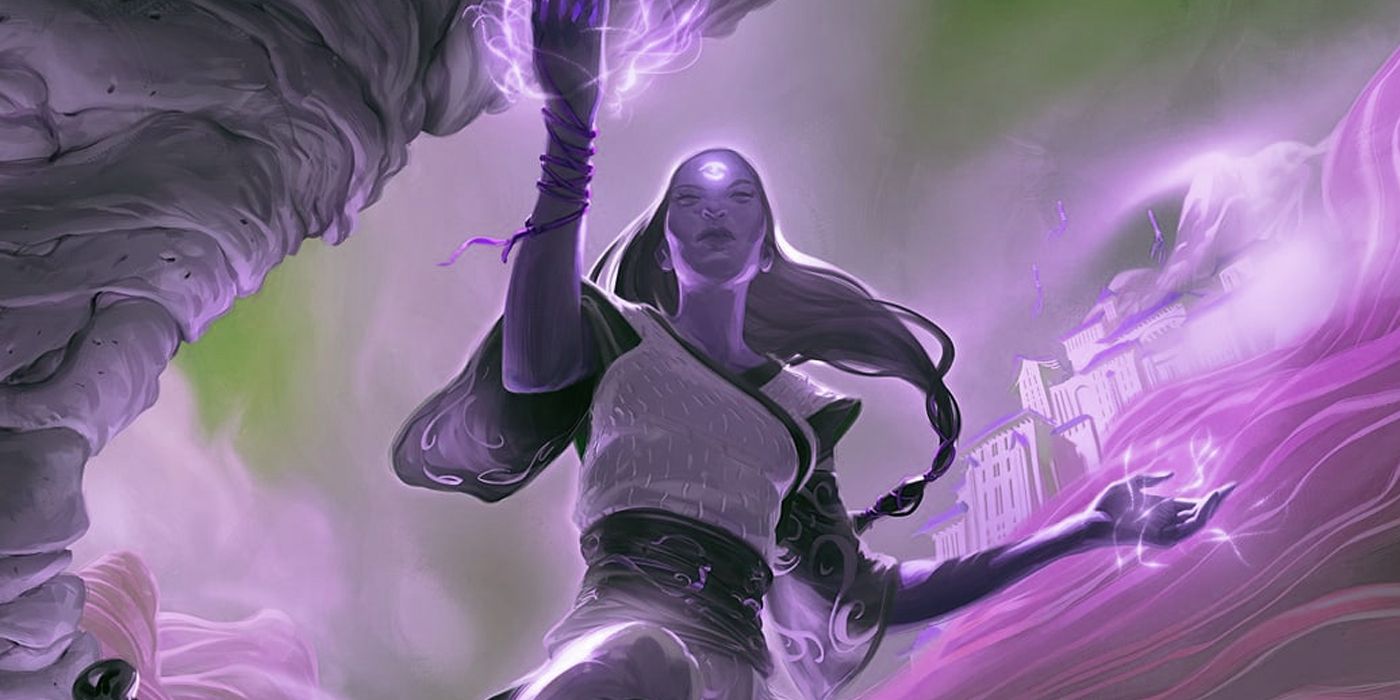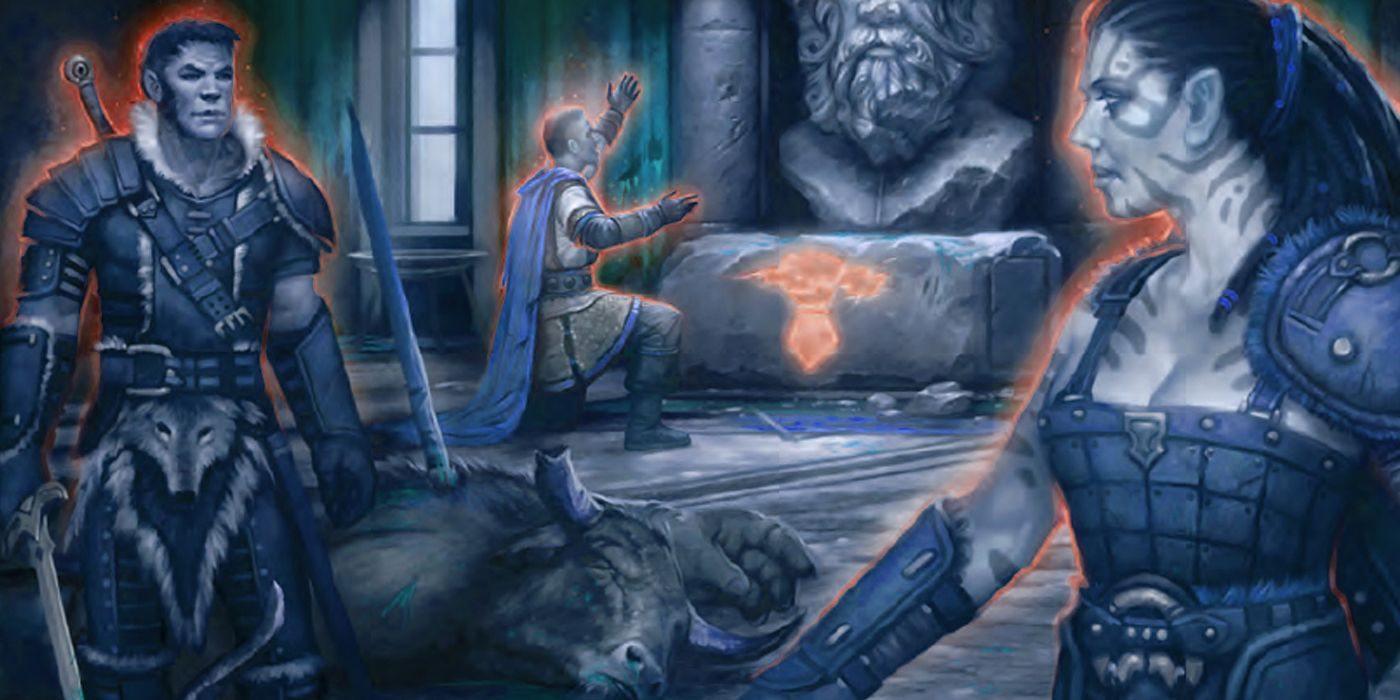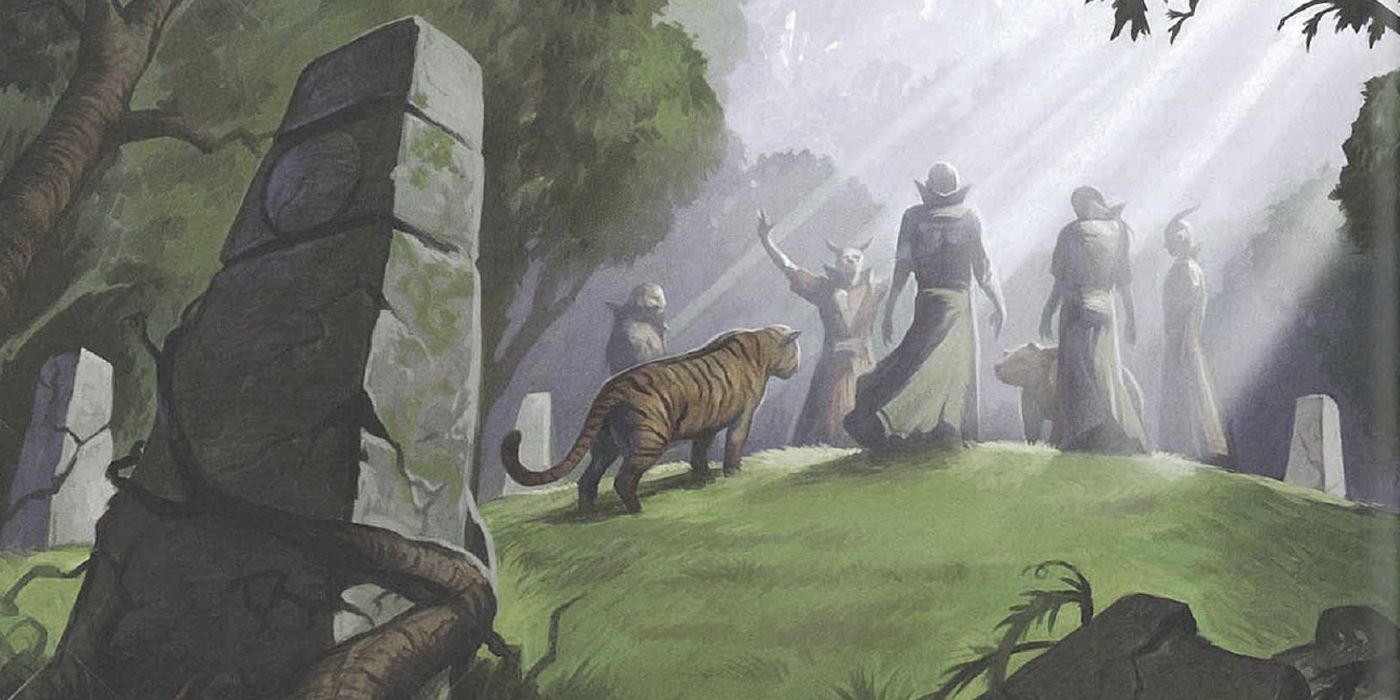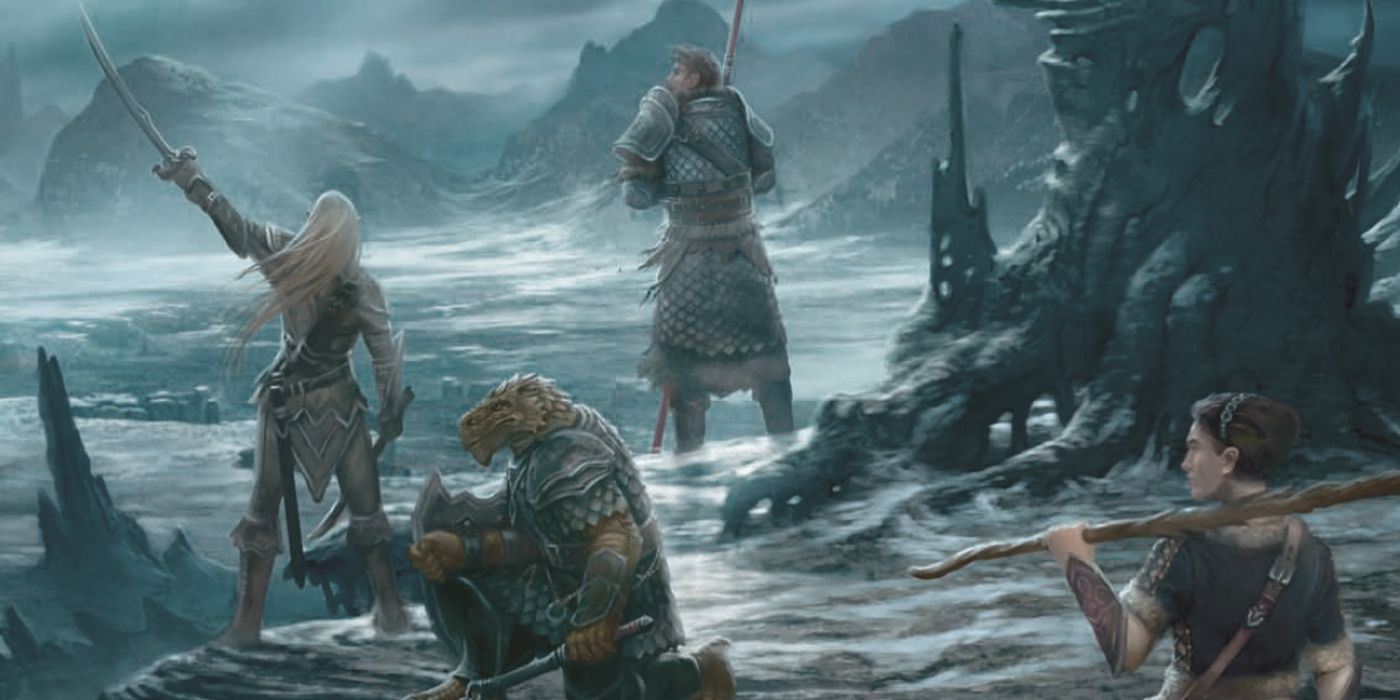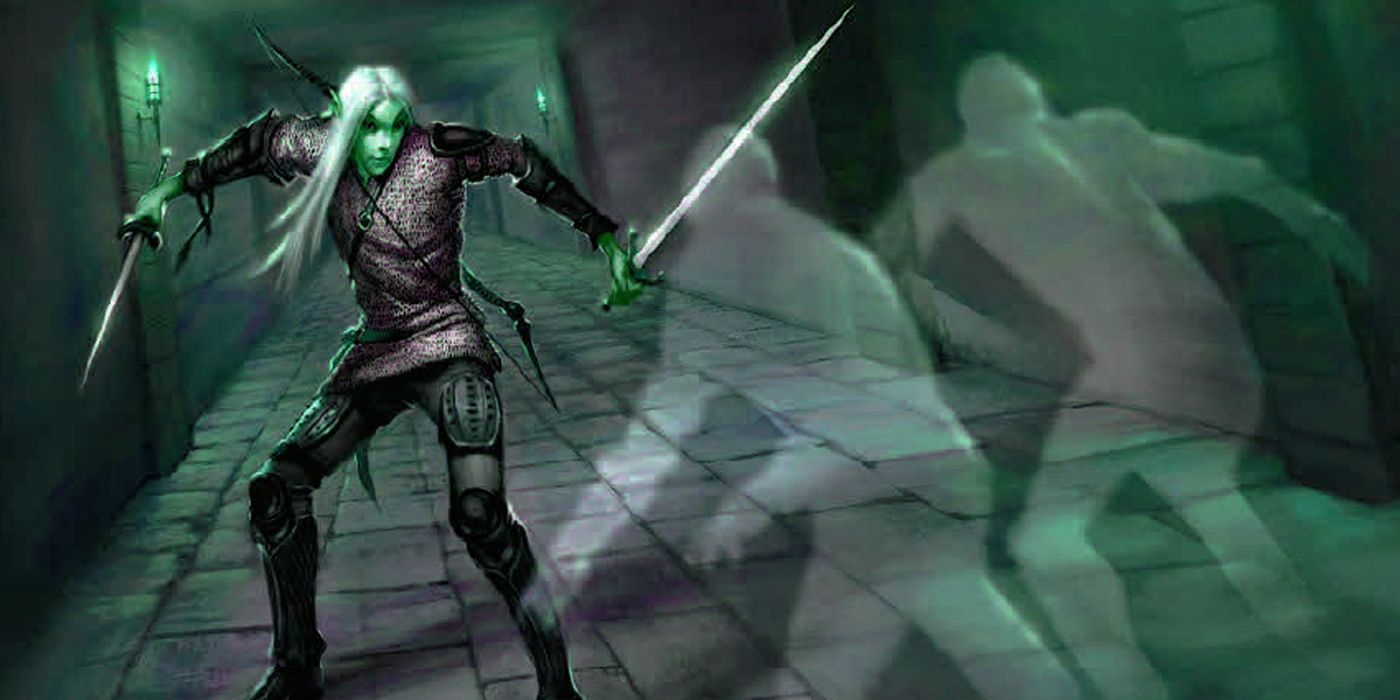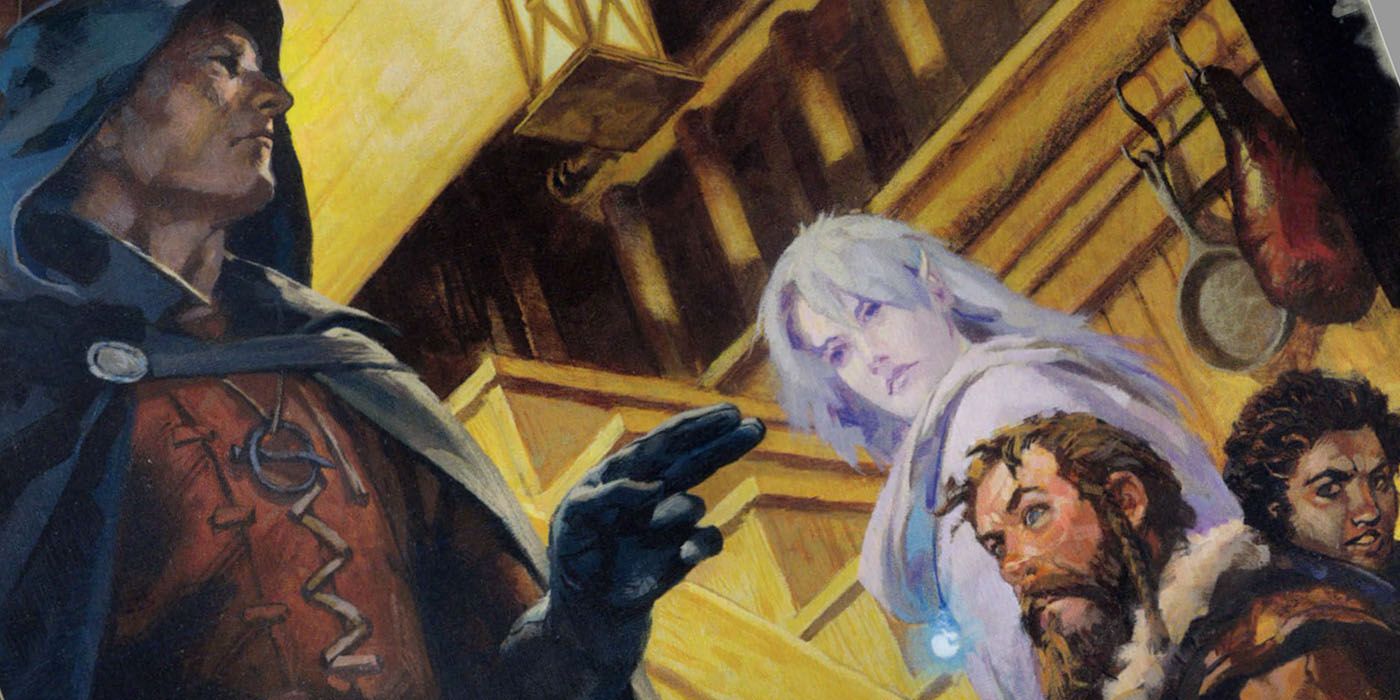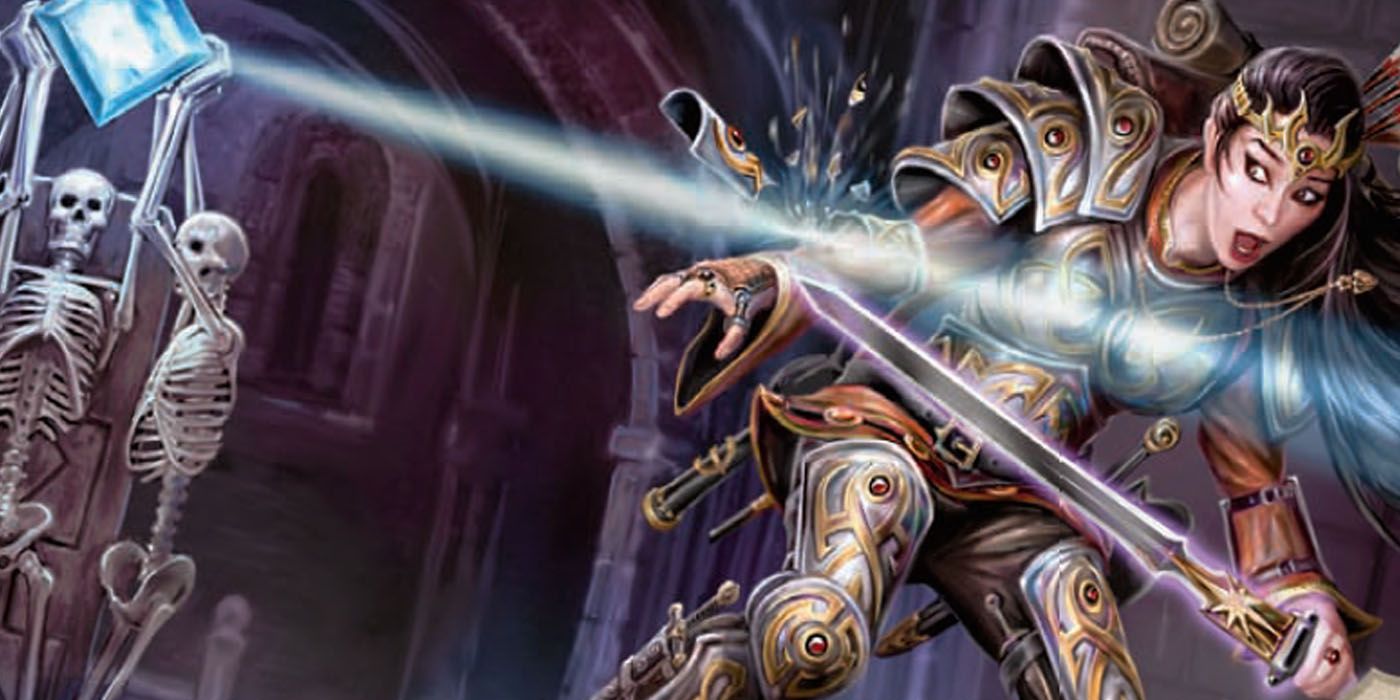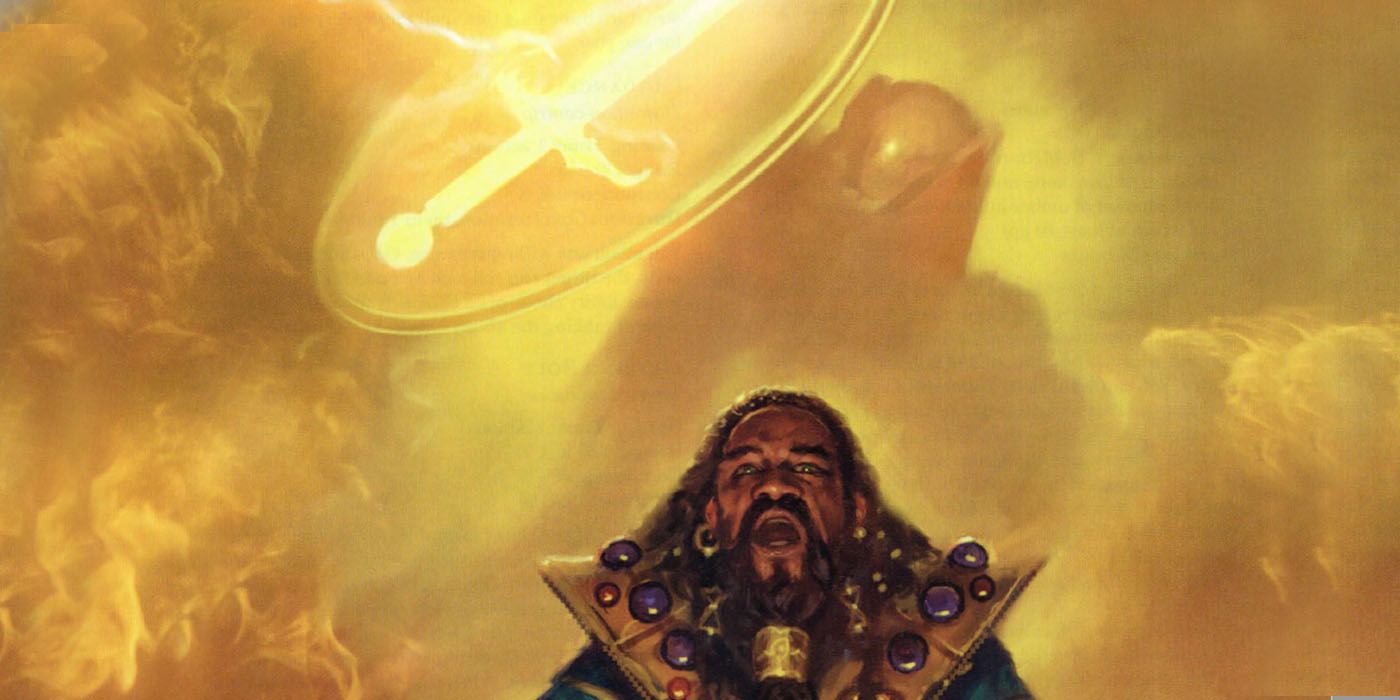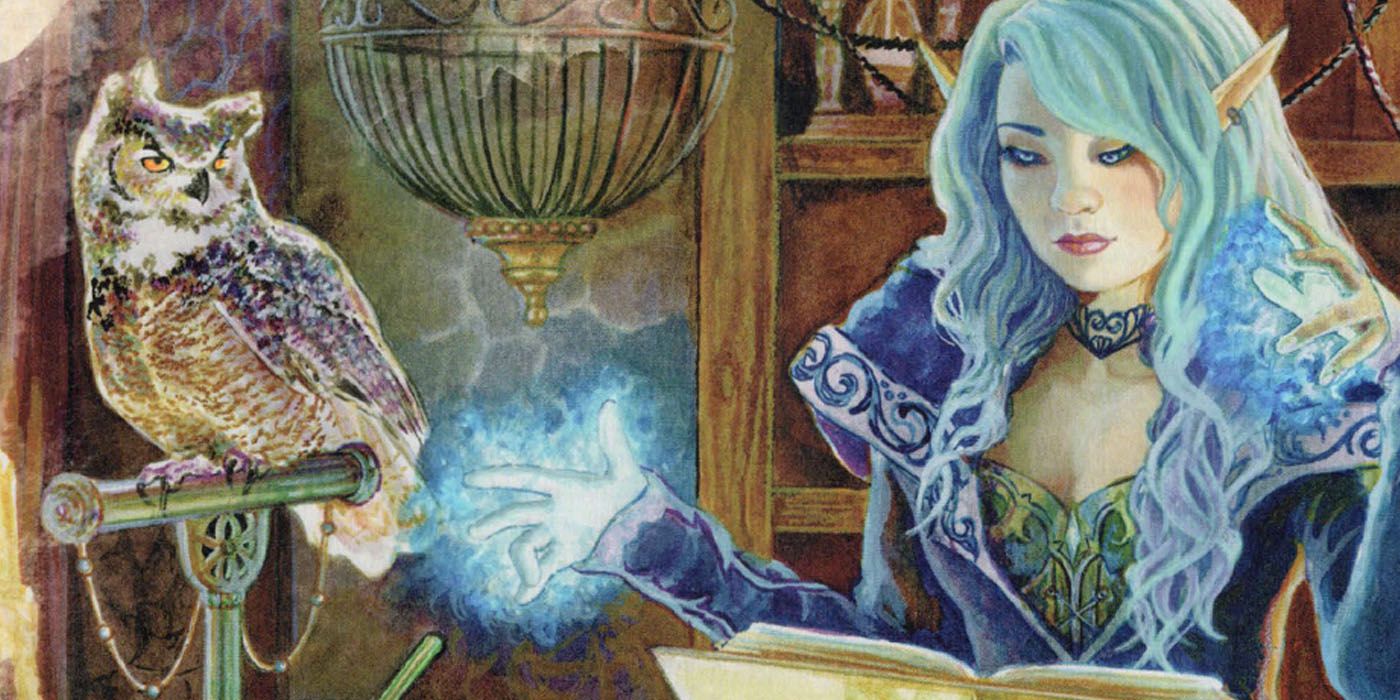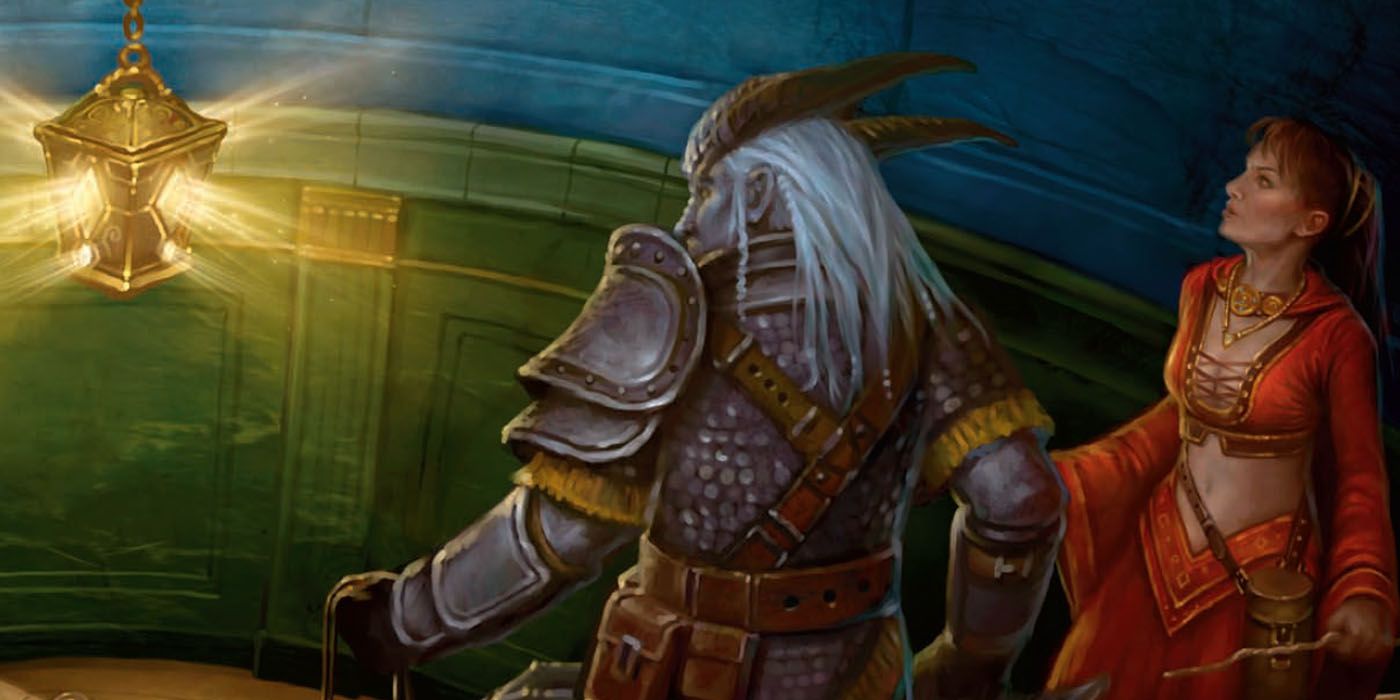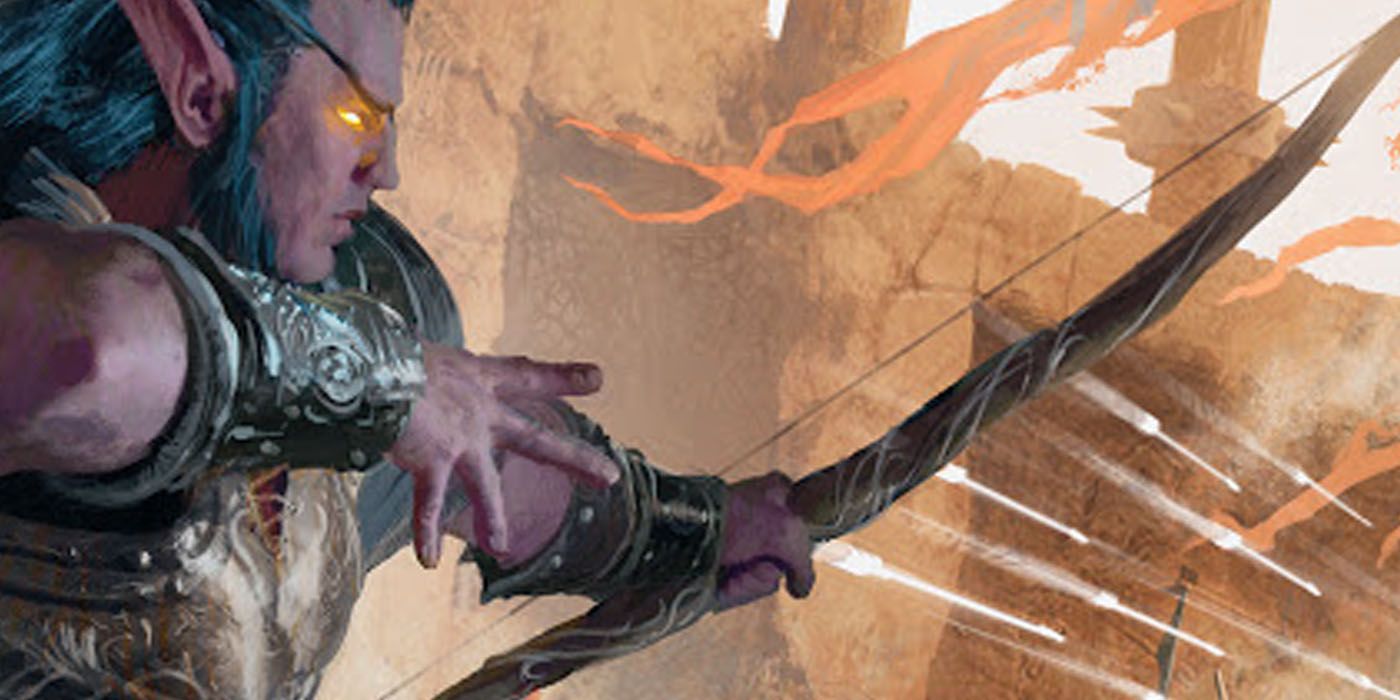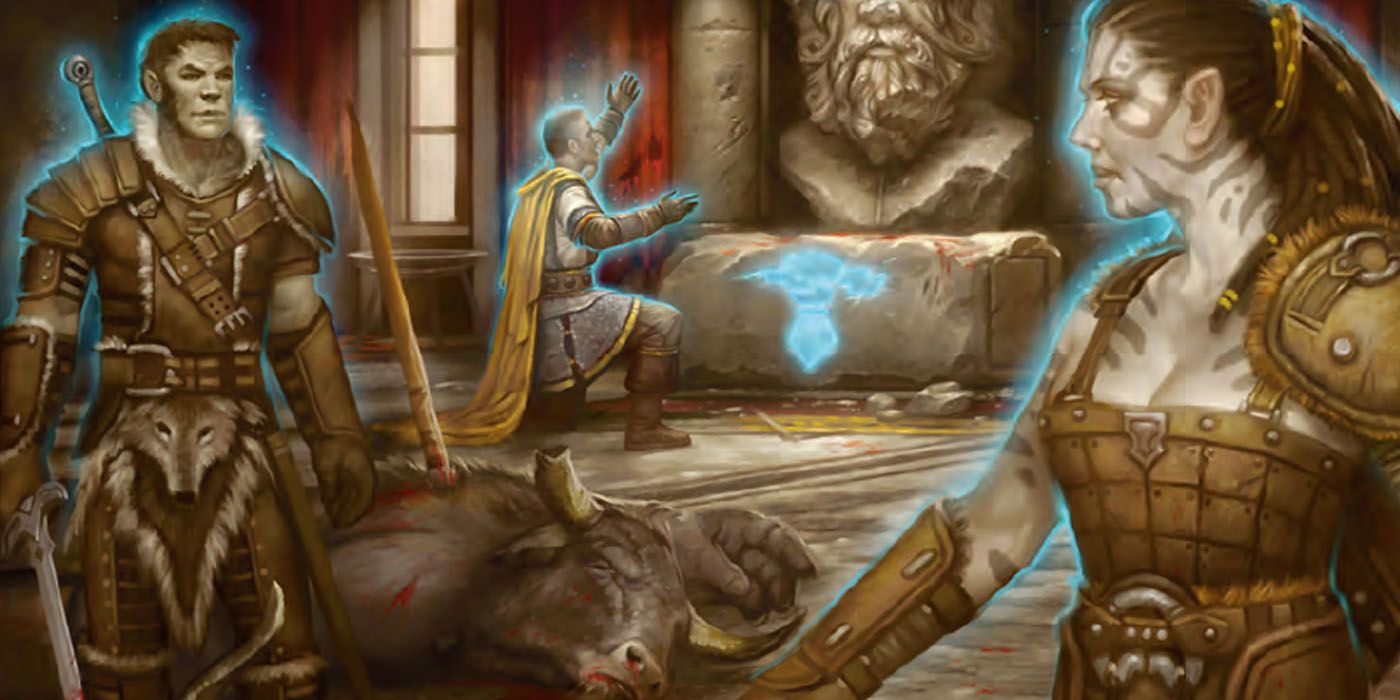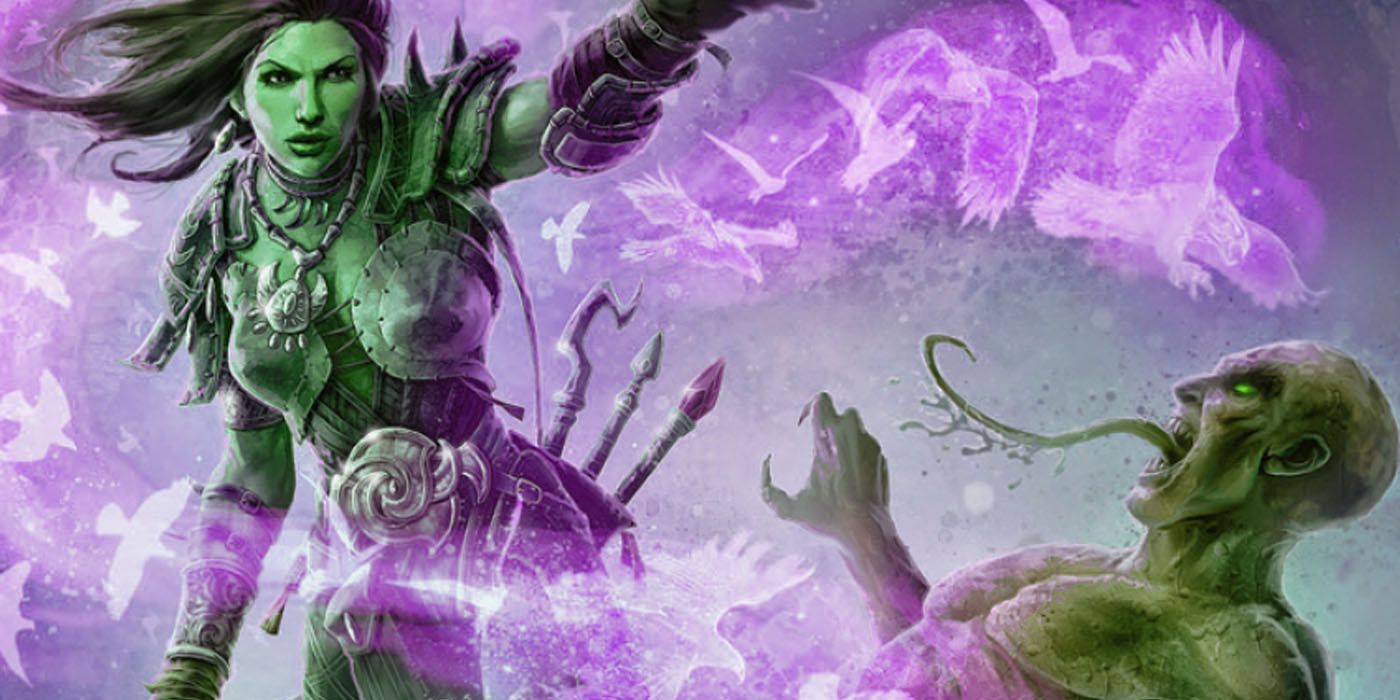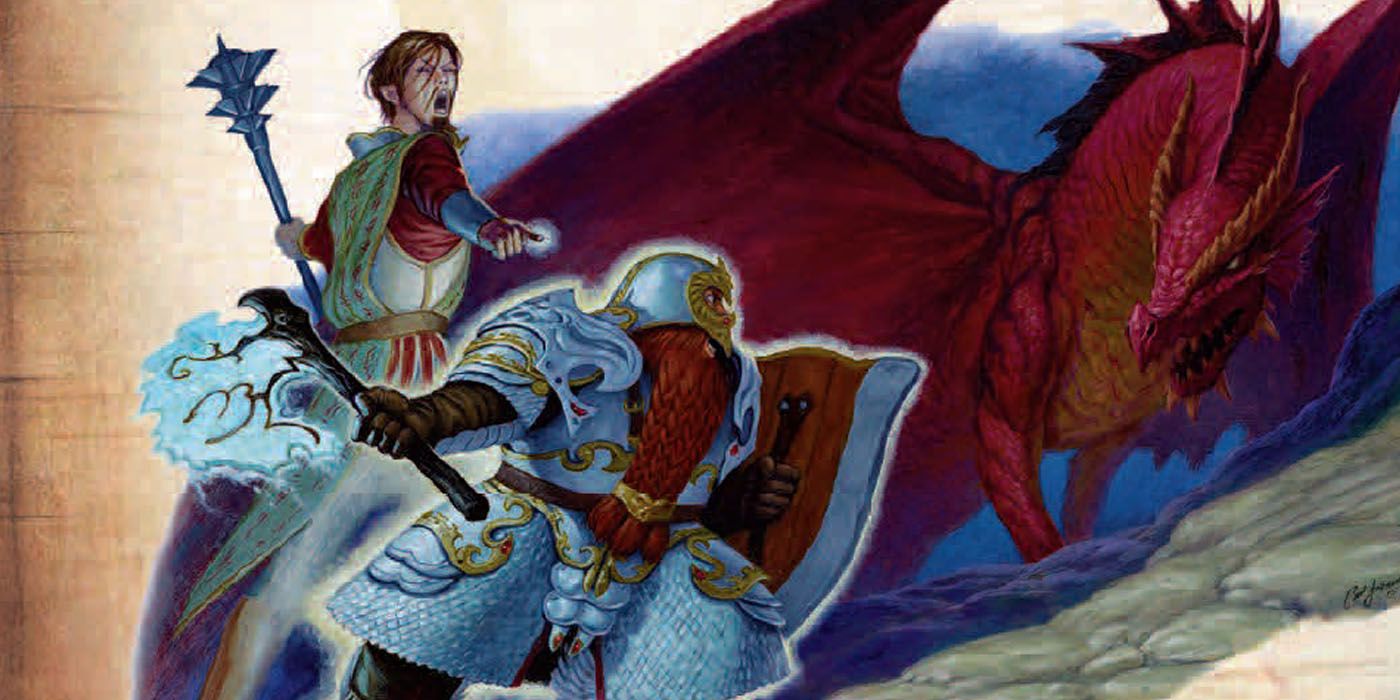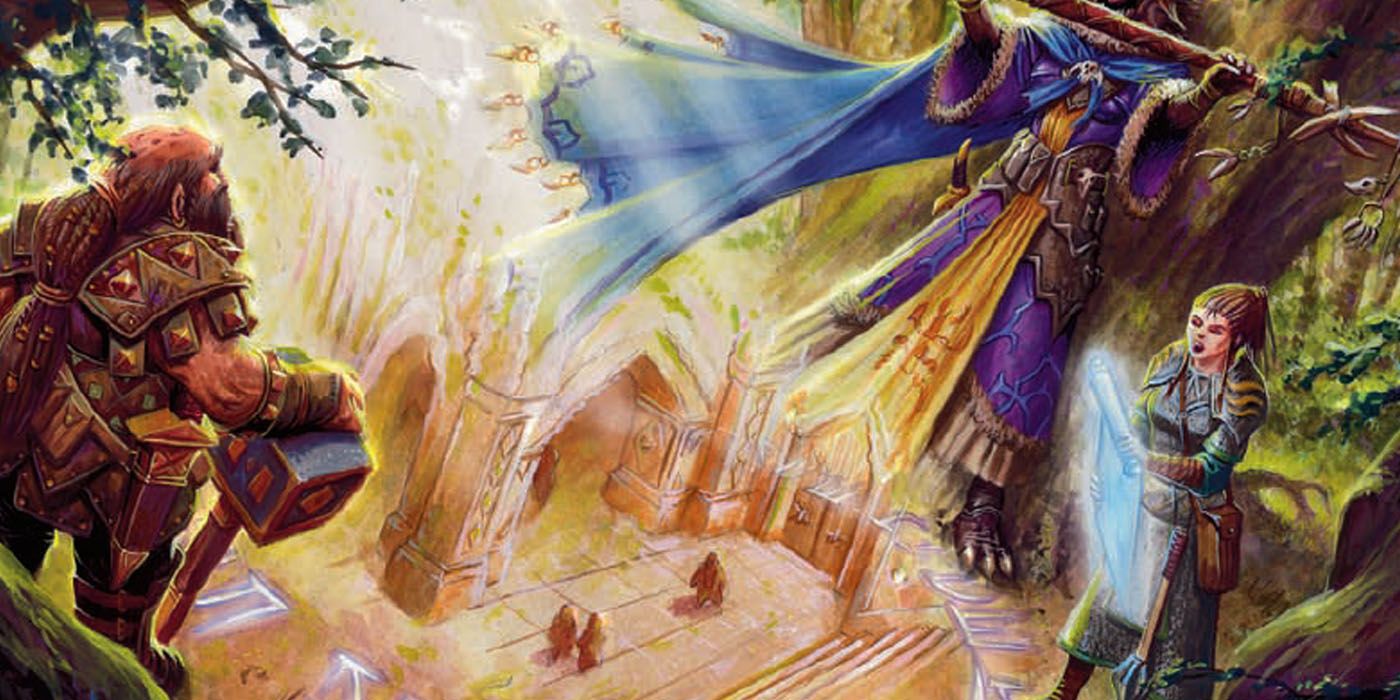In Dungeons & Dragons, the Divination School helps Spellcasters peer into the light of celestial forces to use their presence to influence the real world. This type of magic becomes a Spellcaster's nearest equivalent to tapping into the Divine. As such, Divination Spells use nigh-supernatural forces to reveal and demystify information for its casters.
D&D 5e has quite the selection of Divination Spells to diversify a Spellcaster's toolkit. In fact, some Divination Spells can transform ordinary roleplay sessions into insightful encounters with the mystical forces that influence the game's current campaign. With the right Spells from this school, a Spellcaster may not need a Fireball to solve a sticky situation.
Updated December 26, 2021 by Rhenn Taguiam: Spellcasters seeking mystical knowledge will need the best Divination spells. Mages-in-training may only have a shot in passing the rigorous classes and examinations of Strixhaven, a cutthroat magical school introduced in its eponymous sourcebook. The introduction of Strixhaven and a renewed vigor for spellcasters heralded wonders to the realm of magic in Dungeons & Dragons. The new book finally gives players a glimpse into the lives of magical adepts training to be students in an academy of the mystic arts. For players about to embark on a journey to this mysterious school, what other Divination Spells should their spellcasters prepare?
15 Foresight (9th Level)
- Casting Time & Duration: 1 Minute; 8 Hours
- Range: Touch
- Components: V, S, M (A hummingbird feather)
- Classes: Bard, Druid, Warlock, Wizard
The gift of foresight is a powerful tool for anyone who knows how to use it — and the blessing of Foresight is worthy of its 9th Level classification considering its benefits. The caster bestows its chosen target the amazing ability to see into the immediate future.
This ability truly shines in its mechanical benefits. When cast, the affected target has Advantage on all Ability Checks, Attack Rolls, and Saving Throws, and cannot be Surprised. Moreover, other Creatures get Disadvantage when attacking the affected target. This is a handy boost in defense outside Shields and other buffs.
14 True Seeing (6th Level)
- Casting Time & Duration: 1 Action; 1 Hour
- Range: Touch
- Components: V, S, M (An eye ointment that costs 25gp, made from fat, saffron, and mushroom powder)
- Classes: Bard, Cleric, Sorcerer, Warlock, Wizard
At its core, True Seeing simply gives a willing target the ability to see things as they truly are. However, the real reason for its 6th Level status is how important this can be when it comes to detection in 5e. Since this spell grants Truesight, any form of Invisibility is pretty out the window.
Additionally, Truesight gives clarity in regards to magical traps, as well as the capacity to see into the Ethereal Plane. Considering its 120-foot range, Truesight can give the affected target a remarkable advantage, not just on the battlefield, but in exploration as well.
13 Contact Other Plane (5th Level, Ritual)
- Casting Time & Duration: 1 Minute; 1 Minute
- Range: Self
- Components: V
- Classes: Warlock, Wizard
Sometimes, characters just can’t access certain knowledge that could prove helpful to the campaign. However, if at some point a Warlock or Wizard can access 5th Level Spells, then Contact Other Plane may be worth the while. This spell gives the caster the mental opening to connect with an otherworldly creature from another plane. Given its extradimensional nature, tapping into such knowledge can potentially break the caster.
When cast, the user must pull off a DC 15 Intelligence Save. If they fail, they take 6d6 Psychic Damage and become insane until a Long Rest. When insane, the user speaks only in gibberish, cannot read, and can’t take Actions. However, when successful, they can ask any question of the entity they’ve contacted, which the DM can answer with a single word or phrase.
12 Rary’s Telepathic Bond (5th Level, Ritual)
- Casting Time & Duration: 1 Action, 1 Hour
- Range: 30 feet
- Components: V, S, M (Pieces of eggshell from two different kinds of creatures)
- Classes: Bard, Wizard
Wouldn’t it be great if all party members could split up but still communicate effectively with each other — and without using sending stones? With Rary’s Telepathic Bond, the caster can psychically link the minds of up to eight people.
For the duration of the spell, the bonded individuals are able to telepathically communicate with each other. This is a great way to circumvent communication concerns while scouting areas or touring short distances. While this communication doesn't extend over other planes of existence, the Bond's hour-long duration can give teams quite the advantage.
11 See Invisibility (2nd Level)
- Casting Time & Duration: 1 Action, 1 Hour
- Range: Self
- Components: V, S, M (A pinch of talc and a small sprinkling of powdered silver)
- Classes: Bard, Sorcerer, Wizard
Invisibility can give a team quite the advantage in 5e, but it can be a pesky thing to deal with when enemies use this. See Invisibility is a good way to circumvent this threat. This spell allows its affected target to see invisible creatures as though they’re not invisible at all.
However, it has other effects as well. See Invisibility allows the affected see through the Ethereal Plane, although visions there appear translucent. This level of vision can help players when facing most Spellcasters and spectral creatures, which tend to have special abilities and perks that give them some form of invisibility.
10 Tongues (3rd-Level)
- Casting Time – Duration: 1 Action; 1hr
- Range: Touch
- Components: V, M (a small ziggurat clay model)
- Classes: Bard, Cleric, Sorcerer, Warlock, Wizard
Sometimes, nothing beats a good conversation. For those with a language barrier, Tongues can save the day. A Spellcaster that activates Tongues can grant a creature of their choice with the ability to comprehend any language they hear. Moreover, whenever that target speaks, anyone who can understand at least one language will understand whatever that target says.
Thanks to Tongues, the party's main conversationalist can speak with almost any being. This is extremely helpful when adventuring in other planes of existence, or encountering foreign civilizations.
9 Arcane Eye (4th-Level)
- Casting Time – Duration: 1 Action; 1hr (Concentration)
- Range: 30ft
- Components: V, S, M (a bit of bat fur)
- Classes: Wizard
When Arcane Eye is cast, a Wizard creates an invisible hovering magic eye. The Wizard can get as far away from the Arcane Eye as needed, provided they don't cross over to another plane. For as long as the Arcane Eye exists, the Wizard can perceive everything the eye sees through both normal and darkvision, up to 30ft. As an Action, the Wizard can move the Arcane Eye up to the same distance.
The invisible nature of Arcane Eye makes it one of the best scouting options in the game. However, despite its duration, the limited Classes capable of casting Arcane Eye often makes Clairvoyance a more accessible choice.
8 Divination (4th-Level, Ritual)
- Casting Time – Duration: 1 Action; 1hr (Concentration)
- Range: 30ft
- Components: V, S, M (25gp worth of incense, alongside an appropriate religious sacrifice)
- Classes: Cleric
Clerics use the Divination Ritual to tap into these Divine energies, becoming the equivalent of oracles. Once activated, the Cleric's player can ask the DM about a specific activity, event, or goal that takes place within the following week. The DM must reply truthfully – but it might come in the form of a phrase, omen, or cryptic message.
Divination doesn't factor in circumstances that might try to change this outcome, including recruiting more allies or using other Spells. Given the Spell Level, Divination isn't immediately accessible to players. However, powerful-enough Clerics should use Divination when encountering crucial scenarios in the story.
7 Augury (2nd-Level, Ritual)
- Casting Time – Duration: 1 Action; Instantaneous
- Range: Self
- Components: V, S, M (a set of specially-marked bones, sticks, or tokens worth at least 25gp)
- Classes: Cleric
Mechanically speaking, Augury can help Clerics get some "hints" regarding specific actions within the next half-hour. Like Divination, Augury doesn't take into account some changes made to try and "alter" the event's outcome.
As a Ritual, Augury works best before taking Long Rests, or before crucial tasks such as meetings, competitions, and missions. Augury acts as a safe way for Clerics to commune with their Deities, adding flavor to their Divine nature. The party can use Augury as a non-meta-breaking manner of seeking context regarding confusing tasks. Augury might not be as precise as Divination, but it's the more accessible DM-questioning Spell.
6 Clairvoyance (3rd-Level, Ritual)
- Casting Time – Duration: 10mins; 10mins (Concentration)
- Range: 1 mile
- Components: V, S, M (a 100gp-worth focus for seeing and/or hearing)
- Classes: Bard, Cleric, Sorcerer, Wizard
Diviners have the gift of seeing, and Clairvoyance allows them to tap into the forces that observe nature. When cast, Clairvoyance creates an invisible sensor within the range of a familiar or obvious location. While still detectable as an intangible orb of light, no one can attack or interact with the sensor. The caster can choose to either see or hear things happening around the sensor.
The 10-minute casting time and duration of Clairvoyance make it less than ideal for extended encounters. Moreover, the need to observe a familiar or obvious location poses some difficulties. However, Clairvoyance is more accessible in terms of both Spell Level and Classes compared to the Wizard-only Arcane Eye.
5 Hunter's Mark (1st-Level)
- Casting Time – Duration: 1 Bonus Action; 1hr (Concentration)
- Range: 90ft
- Components: V
- Classes: Ranger
Upon casting Hunter's Mark, the Ranger's target becomes mystically branded as their quarry. While the Spell is active, Rangers get a 1d6 damage boost whenever attacking that target. The caster also has advantage on Survival (WIS) and Perception (WIS) Checks used to find that target.
If a Hunter's Mark target drops to 0 HP, the caster can use a Bonus Action to switch targets. When used with at least a 5th-Level Spell Slot, the caster can extend Hunter's Mark for up to 24 hours. Despite its straightforward nature, Hunter's Mark is an excellent Ranger companion in the early game.
4 Detect Magic (1st-Level, Ritual)
- Casting Time – Duration: 1 Action; 10mins (Concentration)
- Range: Self
- Components: V, S
- Classes: Bard, Cleric, Druid, Paladin, Ranger, Sorcerer, Wizard
Detecting the presence of magic remains an essential need for any adventurer. With Detect Magic, explorers have the means to sense magic within 30ft from them, provided their magical aura isn't blocked. When unobstructed, Detect Magic allows users to see a faint aura around magical objects and creatures, as well as learning their active School.
The Concentration requirement means the Spellcaster must not need to focus on anything else. However, for regular bouts of investigation, a party might want to have this activated to sense traps, magical trinkets, and other magical presences in the area.
3 Detect Thoughts (2nd-Level)
- Casting Time – Duration: 1 Action; 1min (Concentration)
- Range: Self
- Components: V, S, M (a copper piece)
- Classes: Bard, Sorcerer, Wizard
While telepaths are a rare sight in most campaign worlds, Detect Thoughts is easily the best substitute. This Spell can help casters peer through a target's thoughts at that moment. As an action, the caster can probe a specific thought or much deeper into the target's mind, which then requires a Wisdom Save.
Some might think Detect Thoughts is extremely situational. However, the smart Spellcaster can do great things with the Spell. For instance, Detect Thoughts can become a revelation device, as hearing words can "shape" a listener's thoughts. Alternatively, Detect Thoughts can also help users detect thinking creatures within 30 feet, making this spell a great detection device.
2 Guidance (Cantrip)
- Casting Time – Duration: 1 Action; 1min (Concentration)
- Range: Touch
- Components: V, S
- Classes: Cleric, Druid
When the gods will it, nothing can stop their blessed from taking action. With Guidance, a Spellcaster can imbue their target with Divine guidance. This cantrip grants targets an extra d4 roll to an Ability Check of their choice. To add to Guidance's power, the target can add this d4 before or after making the initial roll.
Despite being a simple bonus, a d4 could make all the difference when it comes to Checks. If not in combat, a Spellcaster should dish out Guidance to allies, especially when in the process of making relevant Checks. Guidance benefits skillful Bards, Fighters, and Rogues the most outside combat.
1 Scrying (5th-Level, Ritual)
- Casting Time – Duration: 10mins; 10mins (Concentration)
- Range: Self
- Components: V, S, M (a 1,000gp-worth focus such as a silver mirror, a crystal ball)
- Classes: Bard, Cleric, Druid, Warlock, Wizard
Scrying is one of the most powerful Spells in a Diviner's arsenal, due to its sheer efficiency. As long as their target is within the same plane of existence, a Spellcaster can attempt to Scry them. The target can succeed in a Wisdom Save to fend off the Scrying attempt, preventing the caster from using Scry for a day.
However, the better the caster knows the target, the harsher the modifiers of that Wisdom Save. Being well acquainted with the target and possessing a bit of their body (such as their hair) can give the target a whopping -15 Save Modifier. Of course, as a 5th-Level Spell, not all Spellcasters can reach this level of magical prowess. Yet, Scrying remains must-get for late-game campaigns.
“Strixhaven: A Curriculum of Chaos” released last December 7, 2021.

